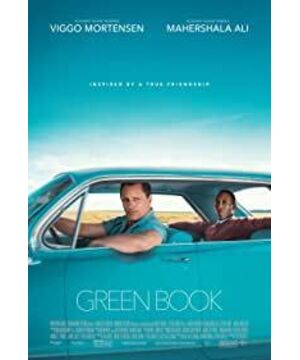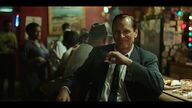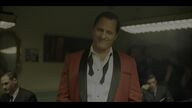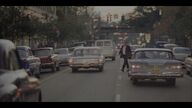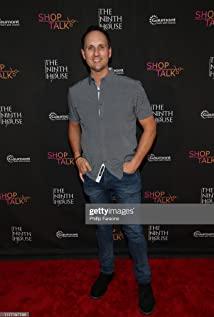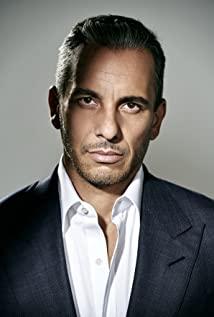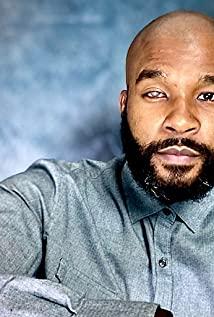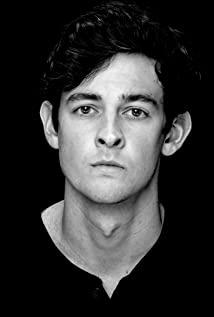King of Death: Under the aura of Oscar's best film, "Green Book" has exceeded 100 million at the box office since it was released on March 1, and it also caused a lot of disturbances at one time. In any case, we can only return to the movie itself in the end.
Author | Peter Pan
It is unavoidable that this year's Oscar winners list is a mixed blessing for the author. Regrettably, there are Mortensen’s improper remarks during the competition, as well as Bell’s failure in the actor award due to the script itself in "Vice President". In the end, a "lip-synchro" actor made a cold hand and got a hot fry. heap.
For example, "Rome", which has created multiple levels of "stereo" sound effects, actually lost to the Queen's MV in the best sound editing (Sound Editing) and best sound effects (Sound Mixing). The original sound reproduced the scene. . If the first award focused on "editing", it would be convincing to give to "Bohemian Rhapsody". After all, in the 135-minute film, many of the Queen’s songs were successfully cut into In this biopic.
However, there is no shortage of awards that people want to applaud. If you have watched "The First Man on the Moon", you will definitely remember the shocking moment when Commander Gao walked from the space capsule to the surface of the moon and the picture instantly opened to the IMAX frame. The best visual effects can be said to be well-deserved.
Furthermore, the best director award given to Alfonso Cuarón is also a commendation on the artistic level of his film technique.
Another thing I agree with is the best film "Green Book." Although there are many people who ridicule its small size and non-critical power, some even say that it is politically correct. However, in the author's opinion, the "Green Paper" is praised by its "politically incorrect". Although "Rome" is a culmination of artistic skills, "Green Book" is also exquisite in the audiovisual language of movies, and even has a clumsy sense of purity.
I humbly thought that when criticizing Oscar's choice, we should consider the understanding of Oscar's own cultural setting. Compared with the three major European film festivals, Oscar's pursuit of film art is undoubtedly the weakest, or it is closer to popular tastes. Throughout the history of the Oscar orientation, the consideration of avant-garde, experimental and artistic considerations is second.
As a native American award, it has adhered to the mission of exporting American traditional core values from its inception. Historical themes, biographies, music genres, etc. belonging to the local macro-cultural values are in line with a very clear value evaluation system. From this point of view, "Green Book" is undoubtedly the most "Oscar-winning" film.
From the award of the Oscar's best film to the tumultuous public opinion, from the perspective of values, these have all been a backlash against the so-called "political correctness" in recent years. Compared with "Moonlight Boy" two years ago, in the context of the increasingly mainstream black equality, LGBTQ equality, and feminist trends in the United States, the "Green Book" is actually very politically incorrect in nature. From a white perspective The reconciliation was also the main reason that pushed it to the cusp of public opinion.
From being ridiculed by mainstream media that whites are not “white” and blacks are not “black” enough, to the Don Shirley family’s description of the film as a “symphony of lies”, to the collective flogging of its value ideology by black cultural leaders.
After getting the best film, waves of condemnation of the "white savior" on Twitter and Facebook, as if mocking "political incorrect", are the core of insisting on "political correctness."
In terms of film format, if "Drive for Miss Daisy" is an early version of the reconciliation between blacks and whites, then "Green Book" actually introduces an upgraded version of contemporary thinking to some extent. When some African-Americans get rid of the solidified racial class in terms of status, the contradictions and reconciliations that arise during his identity and integration with society will undoubtedly have certain discussion value in contemporary American society.
The "Green Book" is adapted from real events in order to have natural logical rationality for behavioral motivation. In the film, a pair of vulgar and ordinary white Tony and elegant black Dr. Shirley are set up in a mirror-contrast relationship. Amplifying the characteristics of the characters, it is this kind of disparity that is far from the concept of social solidification, and the sense of humor that can be formed without deliberately creates the core dramatic tension.
Although the story takes place on the tour of Tony and Dr. Shirley in the south, it can barely be called a road movie, but from the core point of view, "Green Book" does not have classic road movies such as "Easy Rider" and "On the Road". Traits. The significance of the journey of the road film lies in the spread of the "road" in this specific occasion, which brings out the continuous development of emotions or thinking through the continuity of time and space.
Looking at the "Green Book" again, if the actual event did not happen during the tour, but a short stay in a certain city, the plot can still proceed reasonably if the point of "on the road" is removed. In fact, from the perspective of the script construction method, "Green Book" is more like a brisk version of "Escape from the Deadly Town".
Under the framework of a large plot and a small pattern, the director explained causality, linear time, external conflicts, and closed endings very clearly. The film maintains the basic integrity of the transition, from the cause of the incident to the foreshadowing of the progressive relationship, and from the "KFC incident", the two officially encountered a "discrimination crisis" turning point on the road, and met again at the first buffer point. At another turning point, the director pushed emotions and contradictions to a peak through repeated plot ups and downs, and finally resolved.
The film follows the most basic creative mode in film and television works. In addition, thanks to the long-term creative experience of light comedy and TV series directed by Peter Farrelly, when capturing and predicting the audience’s psychology, the director knows exactly when to give sweets, when to make people sad, and what to know better. Time to tickle.
In addition, the characterization in the film did not fully complete the character arc of Dr. Shirley until the last scene. From the perspective of the integrity of the role, the film explains in the details of the dialogue that Dr. Shirley was born in high society and studied in the Soviet Union when he was young. It is this social environment separated from racial conflicts that allowed him to return to American society. Get stuck in identity confusion.
Being at the top of society, making friends with high-ranking officials, and in the United States where white elitism was still prevalent at the time, Dr. Shirley naturally distanced himself from most black groups, and had a high degree of self-discipline, all in order to output a message "I am not your impression." The vulgar black man".
In Tony's body, it also reflects the realism after the drama. At the beginning of the nightclub work, the secret contempt for the extravagant and extravagant people of the rich, and the visceral dislike of the black people, were explained very clearly at the beginning of the film. But under the sudden increase in work pressure and life pressure, even if Dr. Shirley’s upper class life is so luxurious, even if his black characteristics are obvious, Tony gritted his teeth and closed his eyes and took work. No matter how great his ideology is, his life cannot be greater. Of embarrassment.
From the beginning of the film, Tony’s hatred of black people, to the forced job of escorting Dr. Shirley to tour in his life, the two finally reached a settlement through the experience of the two people’s journey. Rather than saying that Tony is the protector of Dr. Shirley, it is better to say that in the process of Dr. Shirley's personal transformation, Tony's vision and values have also been broadened to new dimensions.
The meaning of the two being complementary is far greater than the so-called "whites protect blacks". It is not just the reconciliation between blacks and whites on the surface. On the way back to Boston, Dr. Shirley swapped places with Tony and appeared at Tony's house on Christmas Eve. The film here not only achieves a racial reconciliation, but also a reconciliation between Dr. Shirley and his personal destiny.
In addition to the current public opinion questioning the artistry, criticality and values of the "Green Book", the biggest objection comes from Dr. Don Shirley’s family in reality. The focus of the questioning is nothing more than the study of its authenticity. Does Dr. Shirley deny his black qualities? Is Dr. Shirley alienated from his family? Is the white perspective in the "Green Book" appropriate? etc.
Regarding the truth of historical authenticity, the two main prototypes, the property, both passed away in 2013. The script of "Green Book" is mainly based on Tony's true letters and oral statements. One of the screenwriters is Tony. Lip's son Nick Vallelonga. With regard to the creation of Dr. Shirley's part, it is also based on the audiotape transcripts he left behind. Taking a step back, whether the creation of "Green Book" as a film art requires an absolutely true restoration of history is open to question.
In view of the current heated value debate, we might as well take a look at the disputes and justifications of the "Green Book" from the perspective of both parties. The following excerpts compile and compile the real comparison of "Green Book", as well as director Peter Farelli's response to race issues and film creation, thinking from different perspectives.
How authentic is the "Green Book"?
Compiled from the article "Fact-check: How true is Green Book?"
Judging from the existing documents, the actual locations and dates of the events listed in the film are different from the history. The core road trip in the film actually lasts one year and three months, and the scope is much wider than in the film. It can be said that the film is a condensed version of the journey, but judging from the basic facts and the thoughts of the two main characters, the film is relatively correct.
Based on the fact that Tony and Shirley both died in 2013, most of the film’s narrative is based on a collection of Tony’s anecdotes recorded by Tony’s son Nick. Other scenes are also based on Sherry’s interview tapes and other oral materials.
1. A different sherry
Joseph Astor once made a documentary called "Lost Bohemia" about Shirley and other artists living in Carnegie Hall. "Family will definitely tell you the different aspects of the same person. This is different from the hermit Shirley most people think of." Astor said, "The Dr. Shirley I saw in the "Green Book", It’s not the same as the Shirley I met at Carnegie Music Studio in the 1990s, but that doesn’t necessarily mean it’s inaccurate. For family, colleagues and friends, we often distinguish it, which is very normal."
2. Are Don Sherry and Tony close friends?
In fact, this long-lasting friendship has been difficult to prove. The Shelly family's claim that they are not familiar with Tony, it is very likely that the two sides have no intersection. It is possible that the good friends of Dr. Shirley’s recordings are just nostalgia for the wonderful journey years ago. "I still trust him more." Shirley told Astor in the book "Lost Bohemia." "Actually, Tony is not just my driver, nor is there a clear employer-employee relationship between us. My life is still in the hands of this person, do you know what I mean? So we have to be friendly. I teach him English writing."
Shirley taught Tony the appropriate English writing language at the beginning of the film journey. Shirley also taught Tony how to write to please his wife. These six letters are still intact in the Valilonga family.
But the Sherry family's response did not seem to acknowledge the friendship between the two, claiming that Tony was fired. According to Tony's family, Shirley was going to Europe for a long-term tour, and Tony was unwilling to be too far away from home, so he terminated the employment relationship, but the two have kept in touch with each other and are friends who can speak for themselves.
3. The "Green Book" is just a manual for black people to avoid disasters?
In the setting of the movie, the Green Book is a practical manual to help black travelers avoid racial conflicts in case the protagonist goes astray. But in reality, the Green Paper for Black Driving Travelers offers much more than that. The real green book is a serious travel booklet. It was published between 1936 and 1967 and was the most popular travel book that catered to the tastes of black travelers. Its founder, Victor Green, is an African-American postman who lives in Harlem. The first Green Paper mainly covered the New York metropolitan area, and then gradually expanded to all states, as well as Mexico and Bermuda.
But in fact, the content of the Green Book is much higher-end than the movie shows. Basically covering everything the reader needs, this is not just a travel guide for accommodation and dining. There are also references for beauty, shopping, nursing homes, pharmacies, clothing stores, liquor stores, nightclubs, gas stations, etc. Most blacks know the Green Book, and by 1962, the circulation of the Green Book reached 2 million.
4. Shirley is estranged from his family?
Shirley was born in a wealthy family in Pensacola, Florida, and grew up in close family relationships. His father was a bishop priest and owned his own church. His mother was a teacher and played an important role in the enlightenment of Sherry's music, but he died when he was nine years old. In reality, he still has three brothers. Obviously it does not match the description in the movie. It is unprovoked as family disharmony. It is no wonder that the Sherry family will be angry.
Judging from the description in the movie, Shirley and his only brother have not been in contact for a long time. But in fact, he has three brothers, and he always communicates once a month during his travels. On this point, the film director Peter Farelli also admitted that the team made a mistake. His impression was that there were not many family members who survived at the time, so he didn't look for it carefully.
5. Southern United States at sunset
In the movie "Green Book", Tony and Shirley drive through a sunset town in Mississippi (Sundown Town, meaning that blacks are prohibited from traveling after sunset). According to James W. Levine, author of "Sunset Town", since 1890, thousands of sunset towns have been haunting the development of desegregation in the United States.
To this day, there are still black curfews in some American cities and towns. Some have signs, some do not, and some even have laws to expel black residents and tourists. Other minorities are sometimes targeted. But this is mainly a phenomenon in the Northwestern United States. Three sunset towns were found in Mississippi, 506 in Illinois, and more than 400 in Indiana.
6. Did Robert Kennedy really rescued them from prison?
In the movie, the two were locked up for violating the regulations of Sunset Town. Afterwards, Shirley called the then Attorney General Robert Kennedy, and the police officer immediately released them. In fact, Shirley did call, but it was not him.
According to Shirley's own statement, Tony did not hit the police officer, and Shirley was not arrested. When they drove through West Virginia, because the white police officer could not understand "the white man driving the black man", he insisted that they were speeding. Shirley didn't have enough cash to bail Tony at the time, and found Kennedy's assistant to inform him on the grounds of calling a friend to send money. As soon as Kennedy called to Florida, the police officers immediately changed their attitude 180 degrees and released them immediately, but the speeding fine was still deducted.
Interview with director Peter Fareli
Compiled from NBC, SlashFilms & Vulture
Q: You started to create the "Green Book" around 2016. Did you take a fancy to the rise of racism in the electoral environment?
A: Yes, I know. When I first started production, as soon as I heard this story, I immediately realized that it would arouse great repercussions in the future. In fact, I realized this problem three years ago. In fact, the current race relations have not intensified, because since three years ago, the police must install cameras on their bodies. The media seems to be reluctant to admit some things, but I think these changes will be projected into our lives. This has changed the current situation in this regard. In the past two years, I think people from all walks of life have grasped this point.
Q: How did you consider showing a sense of humor in such a serious racial issue film?
A: We never thought about joking about race issues, absolutely not! But the sense of humor in the film is naturally formed. This is a very strange combination. Two people who are far apart in status, knowledge, taste, and value, what interesting things will happen during the two-month journey? This all-round gap is the source of humor, not a joke. So honestly, when we wrote the script, we didn't find it funny at all.
Maybe many audiences saw the scene of "Eating KFC" was very interesting, but it was not until today that these two actors played the roles that I realized that there was so much fun in it. I would think this is a sense of humor with a heartfelt smile, rather than deliberately funny.
Q: You said that you especially like watching the audience's reaction during the screening test in advance. Is there any different experience in the screening of "Green Book" this time?
A: I was worried and nervous at the beginning. From the beginning of the movie, Tony threw the two black cups into the trash can. At that time, the audience we chose was half black and half white. I thought the black people would stand up and say, "Fuck you, I'm leaving, I won't watch this." But the truth is, none of them! No one left until the end of the film.
After the film was over, I asked them "Hey, how did you feel when you saw that?" I couldn't believe their reaction. They said, "I'm glad you told the truth, and no one else would ever tell it." I didn't expect to have such a response. During the screening, there was so much laughter at the scene, everyone could understand that the film was meant to eliminate Racial estrangement as a manifestation of racial estrangement.
Q: I would love to hear how you integrate these materials into one work when you come into contact with them. And compared with your previous resume, this work is by no means that simple. Why did you come into contact with such serious subjects?
A: Over the years, people have been asking me, "Do you think you really know how to make a film?" I always think that I can shoot when the time comes. Actually, I didn't deliberately plan what to shoot. It was a coincidence. One day I met Brian Hayes Curry (one of the screenwriters). As soon as I listened to the script outline he described, I thought about it for about a month or two, called him, and joined the team like this, and then I met Nick Vallelonga, the son of Tony Archetype. Wrote this script together, it was three years ago.
Q: In fact, once the issue of race is touched, many details will be particularly sensitive. In the process of creation, how did you deal with these misunderstandings that may be in the solidification of white consciousness?
A: Actually, it is not only the race issue, but also a lot of effort to polish the rationality of the plot. Our team, including the actors, all participated in the discussion and creation of the script. For example, there is a scene where Tony and Shirley are drinking on the hotel sofa. Shirley talks about his experience of learning music and the restrictions imposed on him by record companies. Tony immediately fought the injustice for him. According to the script, Shirley responded "Well, thank you, Tony".
But after Ali read it and said, "No, Pete, this is too ridiculous. It doesn't matter which musician would like his music because of a bodyguard with a primary school diploma, and then say it's okay. Shirley must have other ideas in his heart, but he has to behave. Thank you for Tony’s concern.” In the end the film becomes "Okay, thank you, Tony, but not everyone can play Chopin, nor can I".
As for the white savior that everyone is talking about, we all know this very well, because Tony Lip was hired to protect this man, isn't this what the bodyguards should do. As we can see, Tony rescued him from some worldly disputes, but Shirley also let Tony's soul see a different world. We don’t want a black saviour, nor a white saviour. The two people found common ground and came together to complement each other.
Q: Can you talk about Octavia's participation in the film produced by black women?
A: She is our executive producer. She was invited to join because there were no black women in the group at that time. We need a different perspective. And she was also happy to join the group and gave us a lot of useful suggestions during the production process. Ali will tell me directly what can and cannot be done. Octavia may be more like a tester. We will let her review many scenes and content to see if there is any violation of the restricted area. For example, in the scene of "Eating KFC", I was a little worried at first that I would be considered racist. Octavia's must have given me a lot of encouragement.
For another example, our film title "Green Book", I was not sure if we used this, because we were not referring to the real book, but a symbolic symbol. At that time, other people raised objections, and Octavia said, just call it this, because we just want everyone to know the fact of the "Green Book". Now many black people don’t know this thing anymore. It is very important to bring it up again.
Q: This film has attracted much attention since the Toronto Film Festival. In fact, Mahersala's role in the film is quite important, but why did you choose to compete for the best actor at the Oscars?
A: Yes, this is indeed...it was proposed by Mahshara. From my point of view, I think there are two male protagonists in the film. Here is a digression, Spielberg didn't know where to watch my sample, and then called me. At the time, we didn't actually know each other.
He said, "Hey, Pete, this is a very good brotherhood movie! Both of them should be candidates for best actor." I thought so at the time. But then Mahshara said he wanted to report for the best supporting actor. I asked him why he did this, don't do that, you deserve the best actor.
He said to me, "If we are both nominated, it is very likely that the votes will be divided." Then he said, "I just think it's Vigo's turn to do whatever it takes. He played more in the movie than me. So I would rather report for the best male match, because it will help him and it will help me too.".
Q: In addition to the current plot, are there any Tony and Shirley stories that were not used in this film?
A: Yes, because Tony actually worked as a driver for Shirley for a year and three months. In fact, he went to many places and experienced a lot of things. We chose clips that can hold up the arc of the characters to complete the plot. We didn’t use some of the more important clips that might not help the film’s integrity. For example, in the assassination of President Kennedy, Tony later accompanied Dr. Shirley to attend Kennedy's funeral. But we did not shoot this scene, because the incident itself is very heavy, and moving it up will shift the center of the film.
Author | Peter Pan; Public Number | Seeing Death in Movies
Edit | Riding a Rooftop Boy; please indicate the source for reprinting
View more about Green Book reviews


